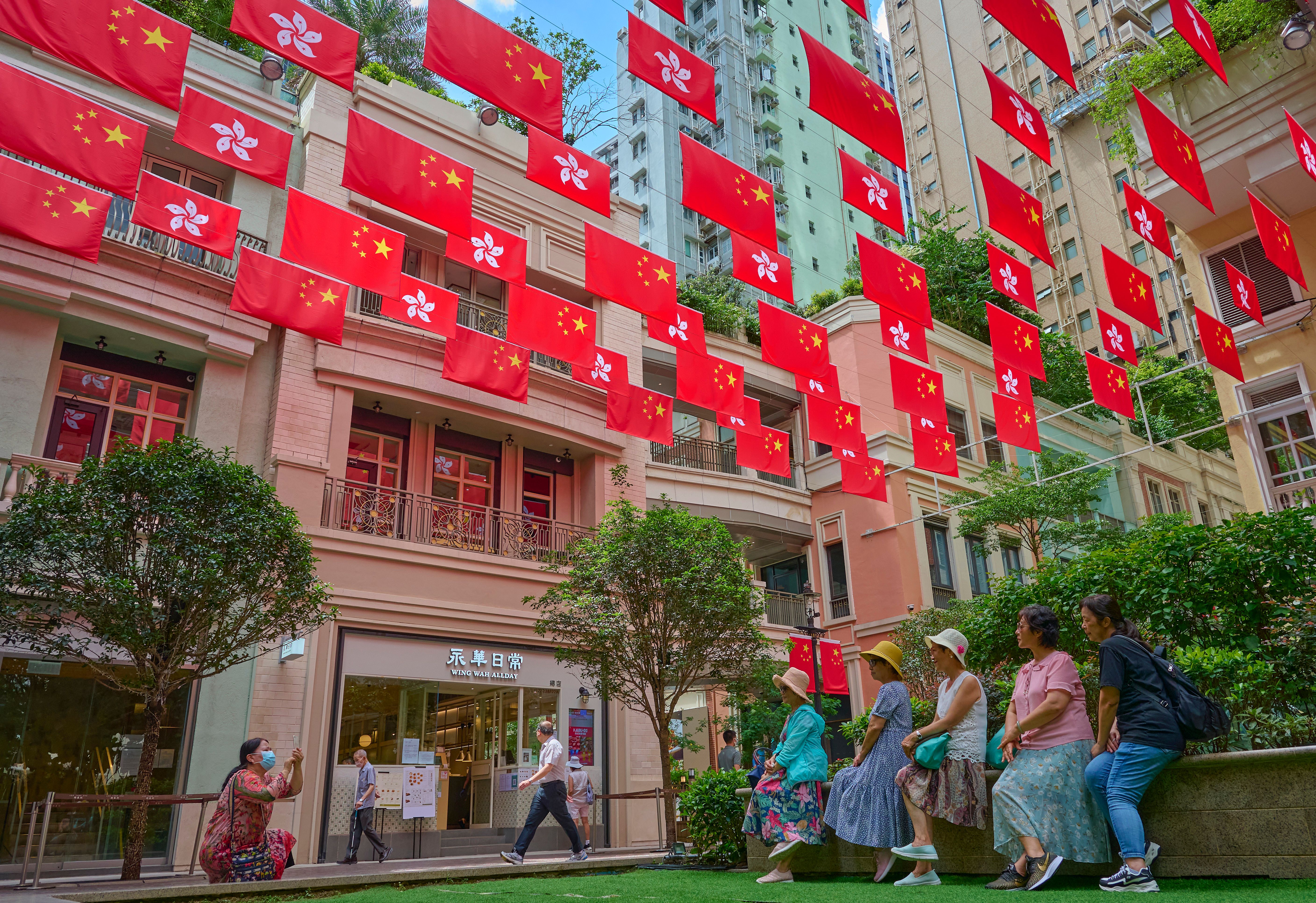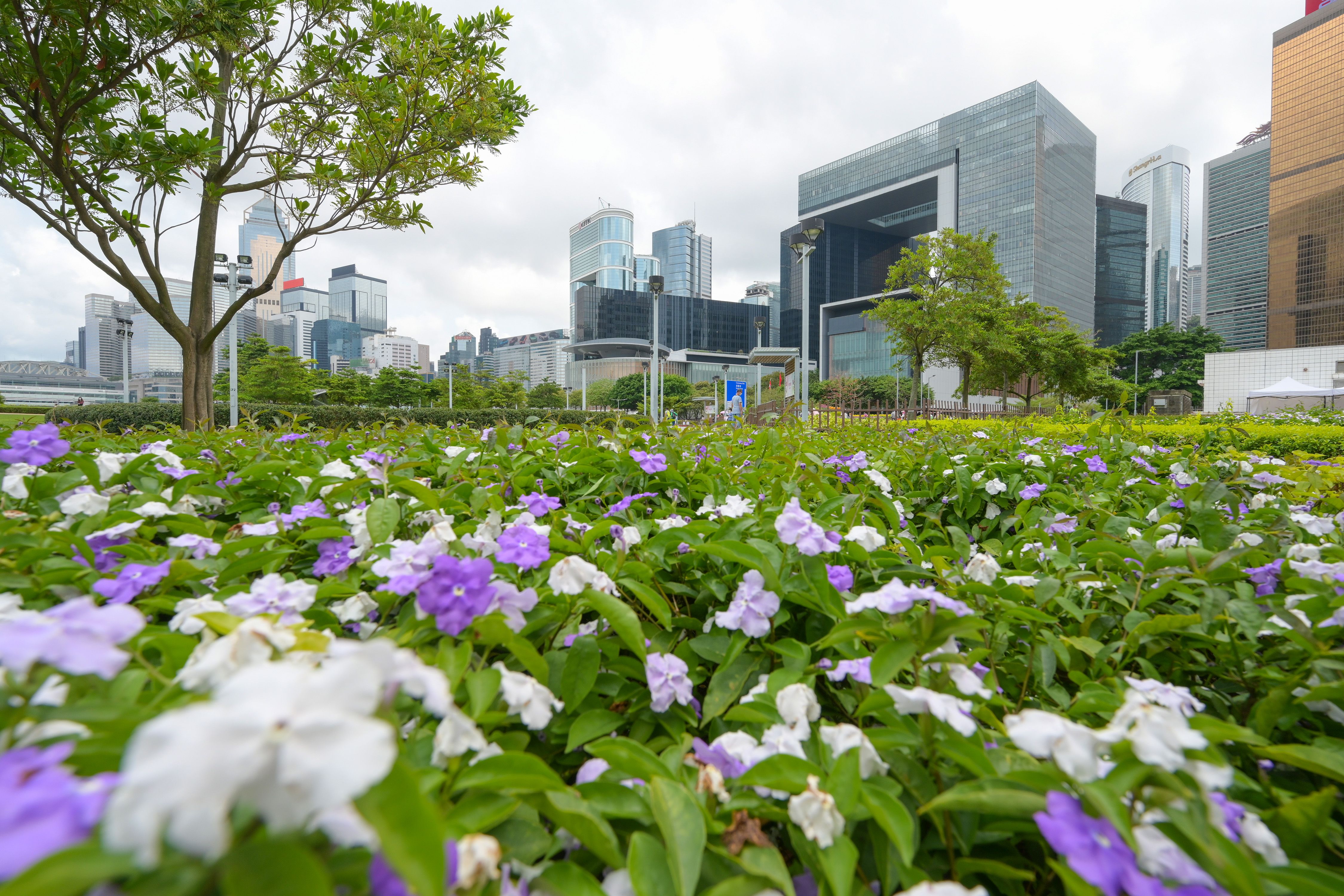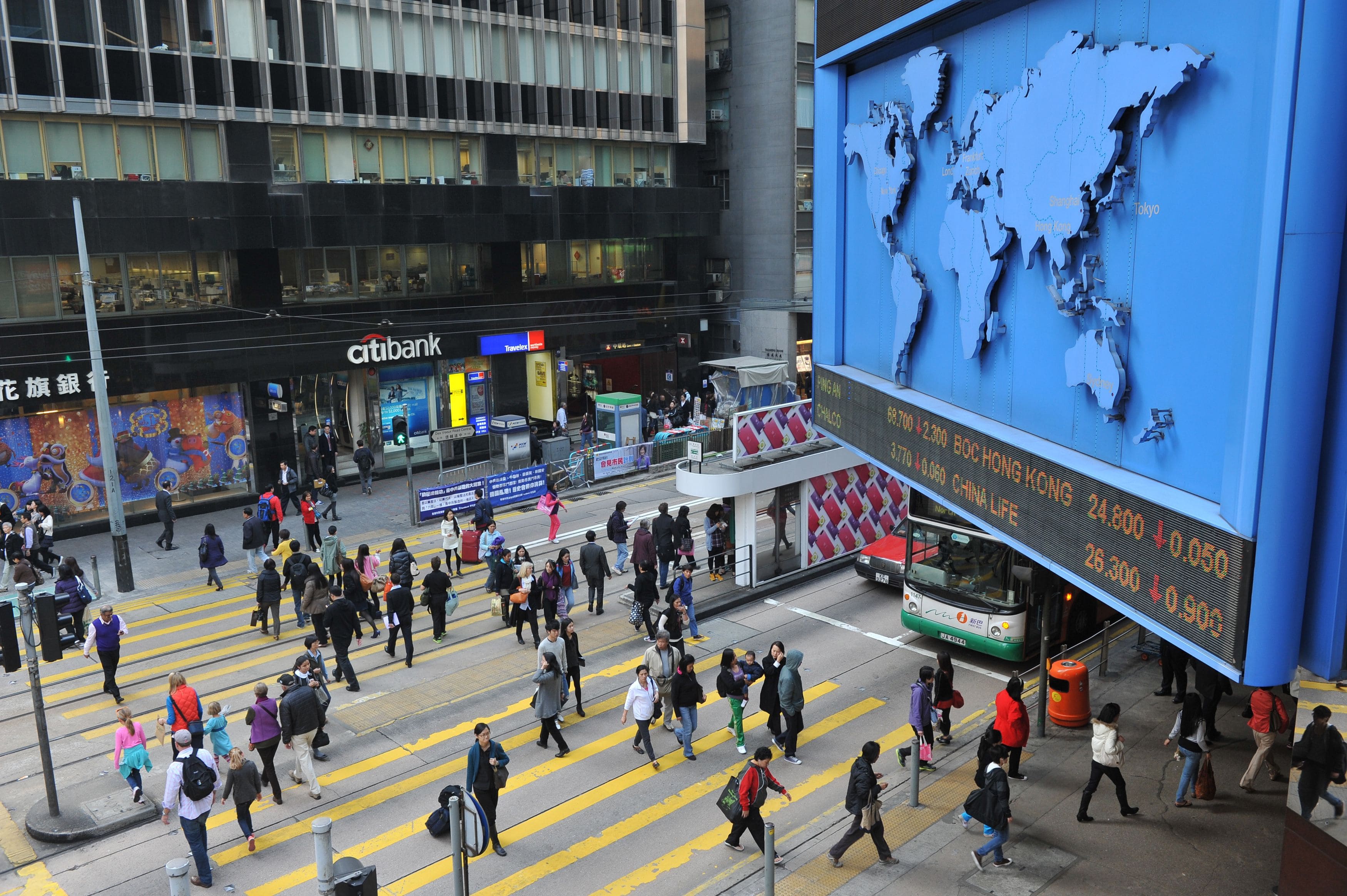
Hong Kong
The Basic Law
The SAR Government
The Basic Law is the constitutional document of the Hong Kong Special Administrative Region (SAR) of the People’s Republic of China. It enshrines the concepts of “One Country, Two Systems”, “a high degree of autonomy” for Hong Kong - except as regards defence and foreign affairs - and of “Hong Kong People administering Hong Kong”.
According to the Basic Law, Hong Kong’s political system and way of life will remain unchanged for 50 years after 1997. Hong Kong remains a free port, a separate customs territory and an international financial centre with its own tax system and convertible currency, the Hong Kong dollar. The rights and freedoms of people in Hong Kong are based on the impartial rule of law and an independent judiciary. Hong Kong remains within the common law system. The Court of Final Appeal is the highest appellate court and is headed by the Chief Justice.
The Basic Law provides that the Hong Kong SAR may on its own, using the name “Hong Kong, China”, maintain and develop relations and conclude and implement agreements with foreign states and regions and relevant international organisations, including in the economic, trade, financial and monetary, shipping, communications, tourism, cultural and sports fields.
It also provides that the Hong Kong SAR may establish official or semi-official economic and trade missions in foreign countries. The global network of Hong Kong Economic and Trade Offices is established in accordance with this provision.
The power of interpretation of the Basic Law is vested in the Standing Committee of the National People's Congress (SCNPC). The SCNPC shall authorise the courts of the Hong Kong SAR to interpret on their own, in adjudicating cases, the provisions of the Basic Law which are within the limits of the autonomy of the Hong Kong SAR.

The Basic Law designates a system of governance led by a Chief Executive and an Executive Council, with a two-tiered system of representative government and an independent judiciary.
The Chief Executive and the Executive Council
The Chief Executive is the head of the Hong Kong Special Administrative Region. He or she is elected by a broadly representative Election Committee and is appointed by the Central People’s Government. The Chief Executive is assisted and advised in policy making by an Executive Council of 16 principal officials and 16 non-official members appointed by the Chief Executive from among the senior officials of the executive authorities, members of the Legislative Council and public figures.
The Government
The main administrative and executive functions of government are carried out by policy bureaux and departments. The civil service employs approximately 177,000 persons or about 4.5% of the Hong Kong’s labour force. Apart from administering public services, its main tasks are to assist the Chief Executive and Principal Officials in formulating policies and carrying out decisions.
Legislative Council
The Legislative Council is the law-making body of the Hong Kong Special Administrative Region. The number of Members of the seventh term Legislative Council is increased from 70 to 90, including 40 Members returned by the Election Committee Constituency, 30 Members returned by Functional Constituencies, and 20 Members returned by Geographical Constituencies through elections.
District Councils
The 18 District Councils advise the Government on, amongst others, matters affecting the well-being of the people in the districts and on the provision and use of their public facilities and services, and undertake environmental improvement projects and promote recreational, cultural and community activities within the districts.

The Central Government Offices at Tamar
Information about Hong Kong
Administrative
RegionThe
EconomyInternational
Financial
CentreInnovation and
Technology
HubPremier Gateway
to Mainland
ChinaMore
information
Special Administrative Region
The Hong Kong Special Administrative Region
Hong Kong was established as a Special Administrative Region of the People's Republic of China on 1 July 1997.
Hong Kong's constitutional document, the Basic Law, guarantees that the principles and policies regarding Hong Kong will remain unchanged for 50 years, and designates a system of governance led by a Chief Executive and an Executive Council, with a two-tiered system of representative government and an independent judiciary.
Since 1997, Hong Kong has continued to prosper, full of dynamism and opportunities, and has grown in importance in the international arena under the auspices of the "one country, two systems" and "Hong Kong people ruling Hong Kong" principles.
Location
Situated at the south-eastern tip of China, Hong Kong is ideally positioned at the centre of East Asia, one of the world's most dynamic economic regions. Hong Kong includes Hong Kong Island, the Kowloon Peninsula and the New Territories, including 262 outlying islands. Hong Kong Island lies just south of Kowloon, separated by Victoria Harbour; the New Territories lie north of Kowloon and run up to the border with Mainland China. A map of Hong Kong can be found here.
Population, geography, languages
Hong Kong has a population of over 7.5 million living on 1 105.7 square kilometres of land. More than 75% of the total area is undeveloped land with great natural beauty and biodiversity. Both English and Chinese are the official languages and many people are fluent in Cantonese and Putonghua. English is widely used in the Government and by the legal, professional and business sectors.
The Economy
Hong Kong is continuing to prosper thanks to its ideal location in fast-growing Asia and the opportunities brought by the Mainland economy.
Hong Kong is an international business, trade and financial hub, as well as a renowned tourist city, providing high value-added and knowledge-intensive services to the globalised world.
Hong Kong was again ranked the world’s freest economy in the Fraser Institute’s Economic Freedom of the World 2022 Annual Report in September 2022. It was ranked number five in the world in the IMD World Digital Competitiveness Ranking 2022.
Its many advantages include free and open trade, the rule of law, a simple, low tax system and excellent infrastructure and connectivity. It has well-established professional services, a thriving start-up ecosystem, a well-educated and industrious workforce, and a low incidence of corruption.
In addition to its four pillar industries (financial services, trading and logistics, professional and business services, and tourism) Hong Kong has been developing into an international innovation and technology (I&T) hub and is seizing the opportunities offered by national projects like the Belt and Road Initiative and the Greater Bay Area development.
Hong Kong is developing its I&T ecosystem to enable re-industrialisation to take root, and to complement I&T development across the boundary in Shenzhen.

International Financial Centre
International Financial Centre
Hong Kong is the world’s 4th financial centre after New York, London and Singapore (Global Financial Centres Index 2023) with an international reputation in areas such as capital-raising, asset management and insurance.
Financial services accounted for 21.3% of Hong Kong's GDP in 2022.
As a global banking hub, it ranks 2nd in Asia and 6th globally for external transactions (US$ 3 trillion)(end December 2022).
76 of the world’s top 100 banks and 12 of the world’s top insurers and operate in Hong Kong (end April 2023).
Hong Kong has a deep and liquid stock market: Market capitalisation of US$4,700 billion (ranking 4th in Asia and 7th globally (end March 2023; Daily turnover of HK$124.9 billion in 2022 and HK$123.7 billion in January-April 2023.
Robust Financial System
Hong Kong’s well-capitalised banking system has an average liquidity coverage ratio and capital adequacy ratio at around 160% and 20% (end December 2022) respectively, well above statutory requirements.
Total bank deposits of HK$15.5 trillion (end March 2023).
Hong Kong’s foreign reserves amount to around HK$3.4 trillion,1.8 times of the monetary base (April 2023).
Listing venue of choice
The Hong Kong Stock Exchange (HKEX) ranked 3rd in Asia and 4th globally for funds raised by Initial Public Offering (IPO) in 2023 (HK$104.6 billion).
Hong Kong is the world's leading listing market for biotech companies and is developing the real estate investment trust (REIT) market.
Fintech Hub
- Hong Kong is a leading fintech hub
- Home to over 600 fintech companies and startups, with 3 promising fintech unicorns
- 44% of the fintech founders in Hong Kong come from overseas.
- Over 160 licensed banks and 8 virtual banks.
- More than 160 authorised insurers and 4 virtual insurers.
- World’s No. 1 fundraising hub in 7 of last 12 years.
More information about Fintech in Hong Kong
Premier gateway to and from the Mainland
Hong Kong is the world’s number 1 offshore Renminbi business hub, processing around 73% of all offshore RMB transactions.
Ever-closer mutual investment conduits between the Mainland of China and Hong Kong include Stock Connect, Bond Connect, and Wealth Management Connect.
Booming Bond Market
Hong Kong ranks 5th in Asia for bond issuance amount (2022)
Green and sustainable bond issuance arranged by Hong Kong amounted to US$27.8 billion in 2022, representing one-third of the Asian market. Over 80% was issued by Mainland entities.
Green and sustainable debt (bonds + loans) issuance in Hong Kong was US$80.5 billion in 2022, 42% higher than in 2021.
Asset and Wealth management centre
Hong Kong is a premier asset and wealth management centre in Asia.
Over 1,800 asset management firms.
AUM of asset and wealth management grew 2% to HK$35.5 trillion (end-2021).
Virtual Assets
- Hong Kong is poised to become a major player in the virtual asset (VA) industry. The regulatory structure for VAs in Hong Kong is taking shape and the licensing regime for VA service providers will come into effect on 1 June 2023. The Hong Kong Monetary Authority shared its plans on the regulation of stablecoins in January 2023.

Innovation and Technology Hub
Hong Kong ranks 14th out of 132 economies in the 2022 Global Innovation Index’s infrastructure ranking.
China’s 14th Five-Year Plan backs Hong Kong’s rise as a global Innovation and Technology (I&T) hub and the HKSAR Government is sparing no effort in promoting I&T development, investing more than HK$130 billion (EUR 14.32 billion) over four years.
Centres of I&T development in Hong Kong include Cyberport, an innovative digital community with over 1,900 start-ups and technology companies that is also a key force shaping fintech development in the city.
The Hong Kong Science Park (HKSP) is the city’s largest R&D base, home to more than 1,400 I&T enterprises and 13,000 R&D practitioners from 22 countries/regions. It has supported 7 home-grown unicorns and attracted 7 overseas unicorns.
The HKSP is establishing world-class research clusters in collaboration with globally renowned institutions and commercial entities. The first batch of R&D clusters involves Health@InnoHK focusing on healthcare, and AIR@InnoHK for artificial intelligence and robotics technologies.
The Hong Kong-Shenzhen Innovation and Technology Park is being built on a 87 hectare site at the Lok Ma Chau Loop, a strategic location at the boundary between the two tech-savvy cities.
Hong Kong’s smart city development is set out in the Smart City Blueprint for Hong Kong 2.0 , which comprises initiatives under six smart areas, namely “Smart Mobility”, “Smart Living”, “Smart Environment”, “Smart People”, “Smart Government” and “Smart Economy”.

Premier Gateway to Mainland China
Since launching the world's first offshore Renminbi (RMB) market in 2004, Hong Kong has become the world's number one offshore RMB business pool, processing around 73% of all offshore RMB transactions (2022).
Mutual access of capital markets is ever-closer. The Hong Kong Stock Exchange (HKEX) launched the pioneering Shanghai-Hong Kong Stock Connect programme in 2014, further expanded with the launch of Shenzhen Connect in 2016 and Bond Connect in 2017. Wealth Connect was launched in 2021.
China's National 14th Five-Year Plan supports Hong Kong in building the city as an international I&T hub, fostering the development of the city as a Belt and Road Initiative functional platform, and achieving diversified and sustainable development of the economy.
Hong Kong will continue to benefit from the ongoing development of Mainland China. The signing of the Regional Comprehensive Economic Partnership (RCEP) on 15 November 2020 by 15 member states – the ten ASEAN countries, China, Japan, South Korea, Australia and New Zealand - will further promote economic integration in the region. Hong Kong will leverage on the advantages under "One Country, Two Systems", playing its unique role as a gateway and an intermediary and seizing the opportunities brought by the development of the Guangdong-Hong Kong-Macao Greater Bay Area and the Belt and Road Initiative.

The following links will provide you with a wealth of information about Hong Kong:
Hong Kong Fact Sheets - handy, concise reference materials on a wide range of topics
Hong Kong Brand – fact sheets, news
Hong Kong Economy - updated statistics and information about the economy of Hong Kong.
The Basic Law - Hong Kong’s constitutional document
Hong Kong Yearbook - a comprehensive review of Hong Kong's progress in a year, from health and welfare, housing and education to the economy, monetary affairs and the legal system.
Hong Kong Welcomes You - Thinking of living, studying, working in Hong Kong?
Hong Kong Talent List : Careers in Hong Kong